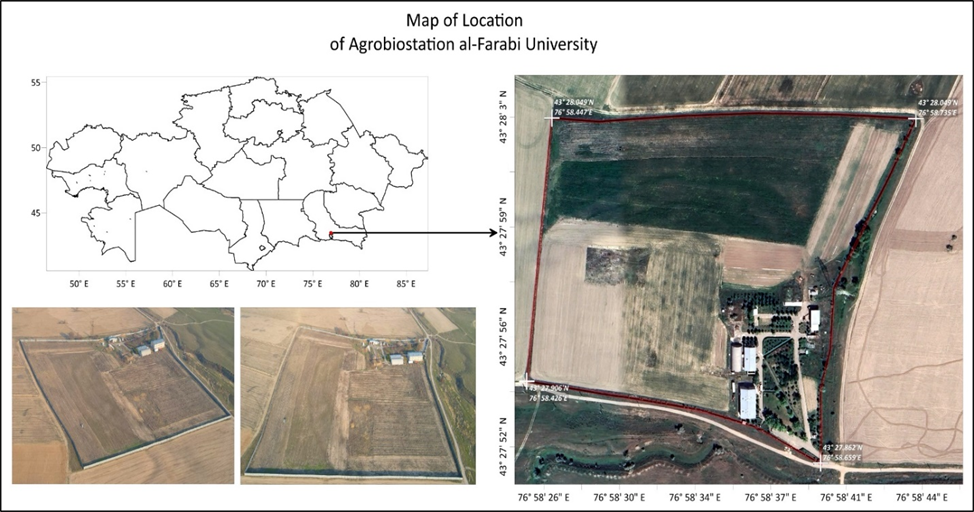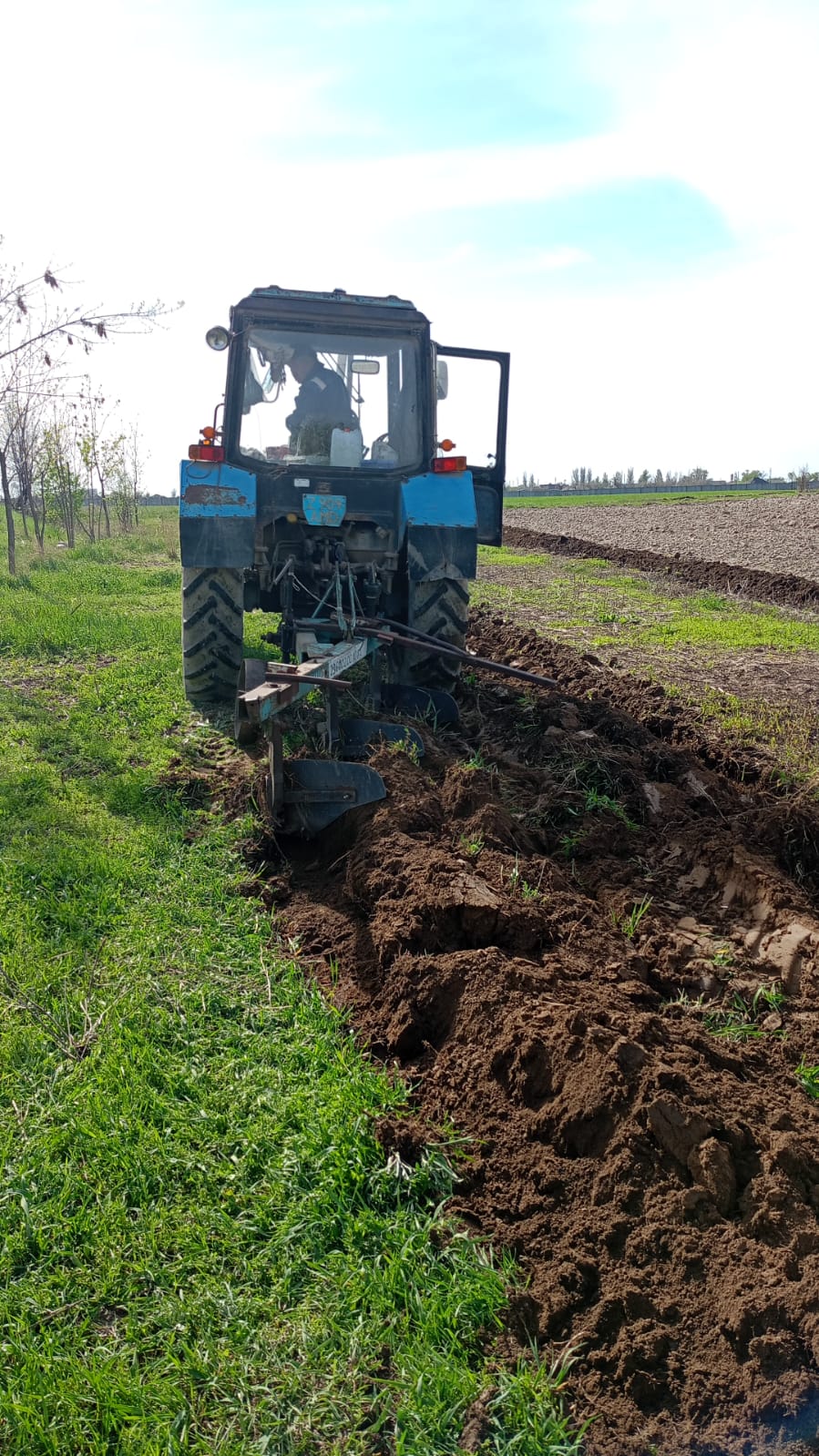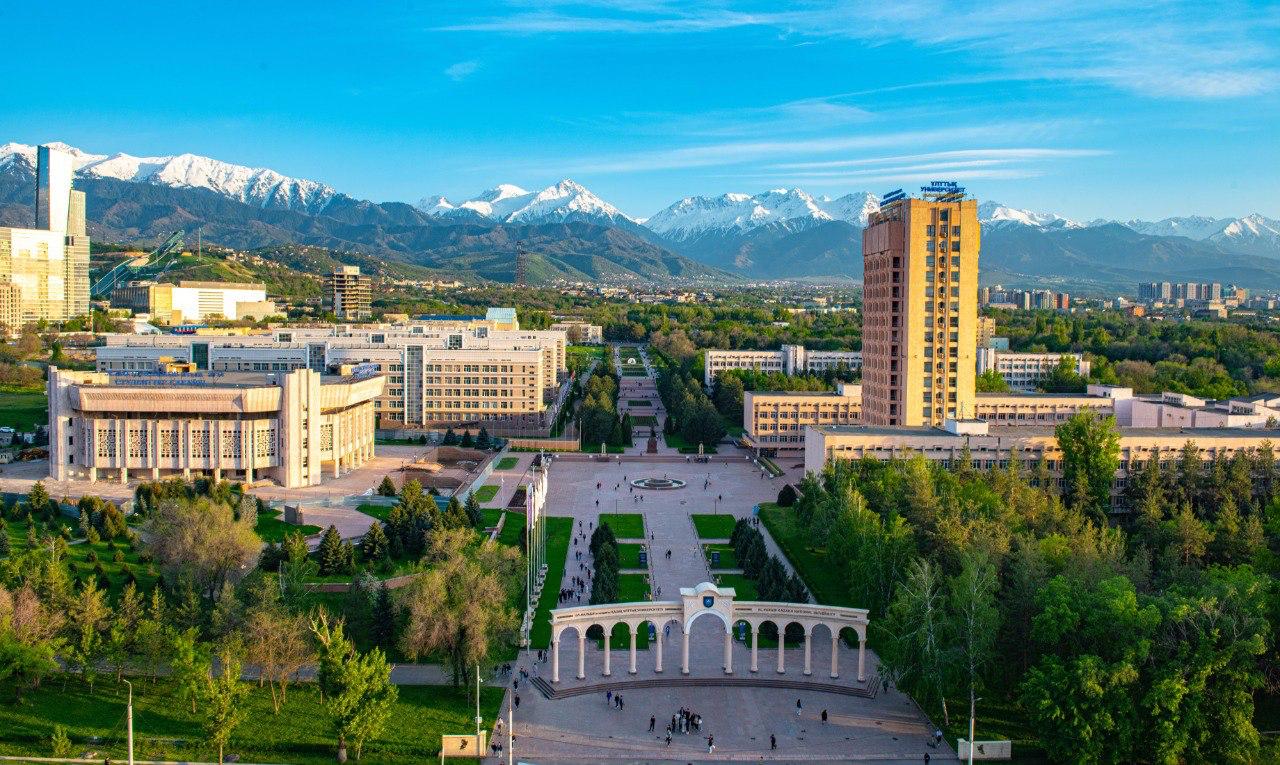General information about the agrobiolaboratory
Location of the educational agrobiostat: Almaty region, Ili district, Baiserke settlement, Zhanatalap village. Contact phone number. 8-727-3935860 year of foundation: 1943 (created in the village of ABS, Kuramys), 2009 moved to Zhanatalap village, Baiserke settlement, Ili district, Almaty region. The management structure is implemented through the dean of the Faculty of Biology and biotechnology, the production department and the curator-vice-rector for Scientific and innovative Affairs. In the 1940s of the last century, he was the vice-rector for Academic Affairs (1943-47) and rector of Kazsu named after S. M. Kirov. (1961-1966) academician, etc. It was created at the behest of darkanbayev (1910-1987). 1943-2008. The agrobiostat (ABS) is located in Karasay district, Almaty region (Kuramys village). On the basis of the ABS, scientific work of students and graduate students was carried out, led by well-known scientists of the Faculty of Biology.In particular: Ageeva N. T. (botanist), Baitulin I. O. (botanist-rhizologist), Biashev G. Z. (geneticist-evolutionist),. Darkanbayev T. B. (biochemist), Inyushin V. M. (biophysicist), Lysenko M. K. (biochemist), Moiseev G. V. (botanist),.Tazhin O. T. (geneticist) Uvarova Z. A.(physiologist), Udolskaya N. L. (geneticist-breeder),etc. The practice of students and graduate students and the conduct of research were the focus of attention of the Academic Council and the Faculty of Biology. Currently, ABS operates in the educational and innovative direction together with 4 major departments of the faculty and 2 research institutes (problems of Ecology, Biology and biotechnology). Main activity. The training agrobiosertory is the only center of our university that conducts agricultural technical scientific research, which conducts industrial practice. The total area covers 10 hectares. Object - fully fenced and guarded. It includes a two-story dormitory for 150 students and a one-story laboratory building on an area of 1200 square meters with a total area for students. In addition, there is an underground storage, a water station, an autonomous 0.4 KV transformer and 400 KV.-a reservoir and a natural gas supply facility for fire safety purposes . ABS new is a destination located in the Talap settlement. Through the Almaty-Kapshagai Autobahn and from the back of the ABS complex. You can enter through the bypass through the new –Talap settlement. 53 km from the university campus to the training center.



